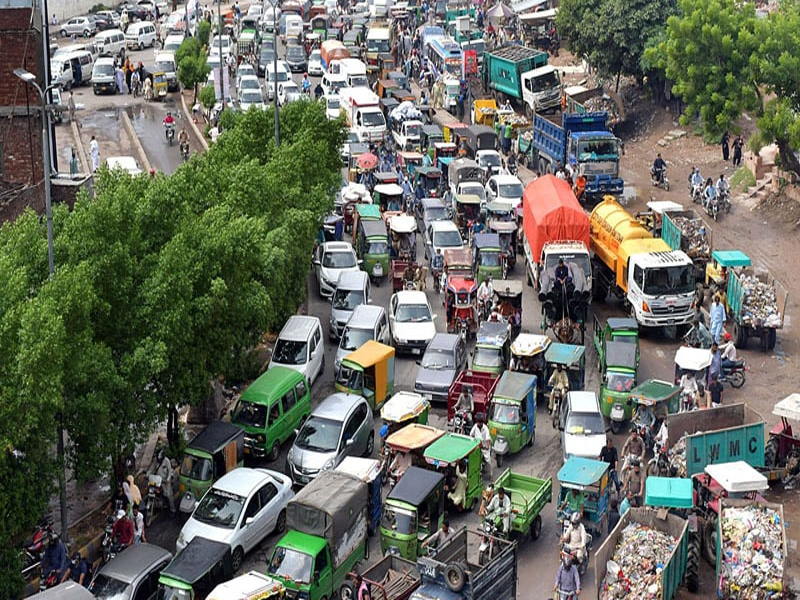Reasons behind increasing road accidents in Karachi

- 177
- 0
Karachi, Pakistan's largest city and economic hub, has long struggled with traffic congestion and road safety. Over the past few years, the alarming increase in road accidents has become a significant concern for residents and authorities alike.
Analyzing the various factors contributing to this trend reveals a complex web of issues that require urgent attention. Poor Infrastructure One of the primary contributors to the rising accident rates in Karachi is the city's deteriorating road infrastructure. Many roads suffer from poor maintenance, characterized by potholes, uneven surfaces, and a lack of proper signage. The inadequate road conditions can lead to drivers losing control of their vehicles, especially at high speeds. Moreover, the absence of dedicated lanes for different types of vehicles, such as motorcycles, cars, and trucks, results in chaotic traffic flow and increases the likelihood of collisions. In addition to the physical state of the roads, the city's design itself often poses challenges.
Narrow streets, especially in older neighborhoods, can barely accommodate the volume of traffic they experience. This congestion forces drivers to engage in risky maneuvers, such as weaving through lanes or making sudden stops, further heightening the risk of accidents. Reckless Driving Behavior Reckless driving is another significant factor contributing to the high rate of accidents in Karachi. Many drivers exhibit a blatant disregard for traffic rules, including speeding, running red lights, and not yielding to pedestrians. The aggressive driving culture is often fueled by the desire to navigate through congested traffic quickly, leading to dangerous behaviors like lane cutting and tailgating. The lack of respect for traffic regulations can be attributed to a variety of factors. For one, many drivers do not possess a thorough understanding of road safety laws. The process of obtaining a driving license in Pakistan is often criticized for its leniency, which allows untrained individuals to get behind the wheel. This lack of proper training results in drivers being ill-equipped to handle complex traffic situations safely. Overpopulation and Traffic Congestion Karachi's population has grown exponentially over the past few decades, leading to a dramatic increase in the number of vehicles on the road. With over 20 million residents, the city's road infrastructure is overwhelmed, resulting in chronic traffic congestion. This congestion is not just a daily nuisance but a significant factor in road safety.
During peak hours, traffic can come to a standstill, forcing drivers to engage in risky behavior, such as making sudden lane changes or aggressive maneuvers to find a way out. Frustration and impatience often lead to reckless driving, increasing the likelihood of accidents. Moreover, emergency vehicles struggle to navigate through congested streets, leading to delays that can have dire consequences. Lack of Awareness and Education A critical element contributing to the rise in road accidents is the general lack of awareness regarding road safety among Karachi's population. Educational campaigns promoting safe driving practices are scarce, leaving many drivers uninformed about the importance of following traffic rules. Basic safety measures, such as wearing seat belts and avoiding mobile phone usage while driving, are often ignored. Additionally, public perception of road safety can be misguided. Many drivers believe that accidents only happen to others, leading them to underestimate their risk. This mentality fosters a culture of negligence, where individuals prioritize convenience over safety. Inadequate Law Enforcement The enforcement of traffic laws in Karachi is often criticized as ineffective. The city suffers from a shortage of traffic personnel, and the existing officers may lack the necessary resources to enforce regulations properly. Corruption among law enforcement officials can further undermine efforts to maintain road safety, as some drivers may evade penalties through bribery. Without stringent enforcement of traffic laws, reckless driving behaviors persist, and the public may feel emboldened to flout regulations. A robust law enforcement presence is essential for deterring unsafe driving practices and promoting a culture of accountability among road users.
Environmental Factors Environmental conditions also play a significant role in road safety. Karachi experiences heavy rainfall, particularly during the monsoon season, leading to flooded roads and reduced visibility. Many drivers are unprepared for such conditions, which can drastically alter road dynamics. Slippery surfaces increase stopping distances, while poor visibility can lead to misjudgments in speed and distance. Furthermore, the lack of proper drainage systems exacerbates flooding, making it challenging for drivers to navigate safely during adverse weather. This situation often results in increased accidents, particularly among those who fail to adjust their driving habits in response to changing conditions. Urban Planning Challenges Urban planning in Karachi has historically focused on accommodating rapid population growth rather than ensuring safety. The city lacks a comprehensive transport policy that prioritizes pedestrian safety, public transport, and traffic management. As a result, roads often prioritize vehicle movement over pedestrian safety, leading to dangerous conditions for those on foot. The absence of pedestrian crossings, sidewalks, and traffic signals in many areas further endangers both drivers and pedestrians. When urban planning fails to consider all road users, the result is an environment where accidents become inevitable. The increasing number of road accidents in Karachi is a multifaceted issue that requires immediate and coordinated action from various stakeholders. Addressing the poor state of infrastructure, promoting safe driving behaviors, enhancing public awareness, and enforcing traffic laws are critical steps in combating this growing crisis.
Furthermore, investment in urban planning and transport infrastructure is essential to create a safer environment for all road users. By tackling these issues comprehensively, Karachi can work towards reducing road accidents and ensuring safer travel for its residents. The time for action is now, as every life saved on the roads contributes to a safer, more secure city for everyone.

















































